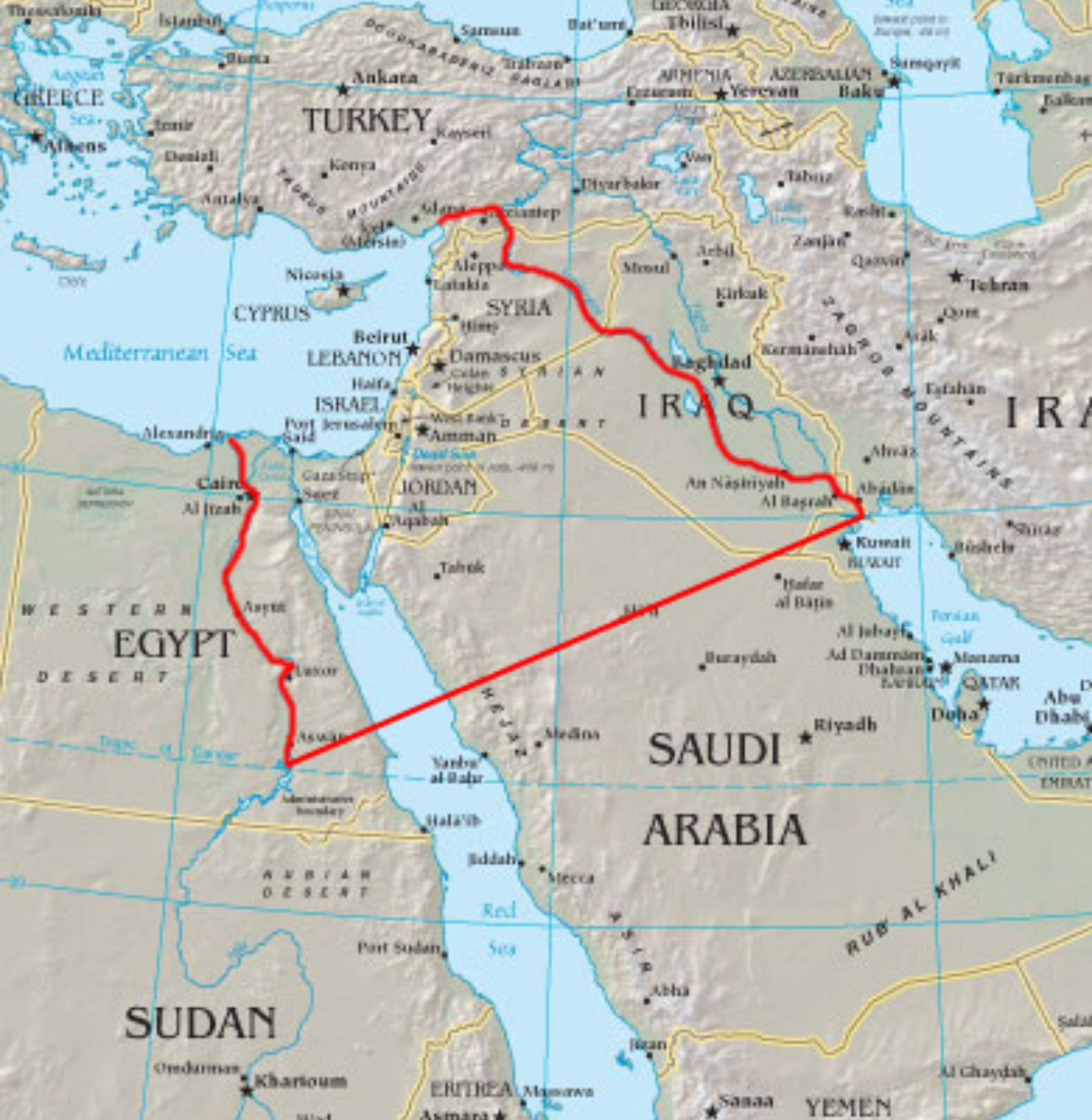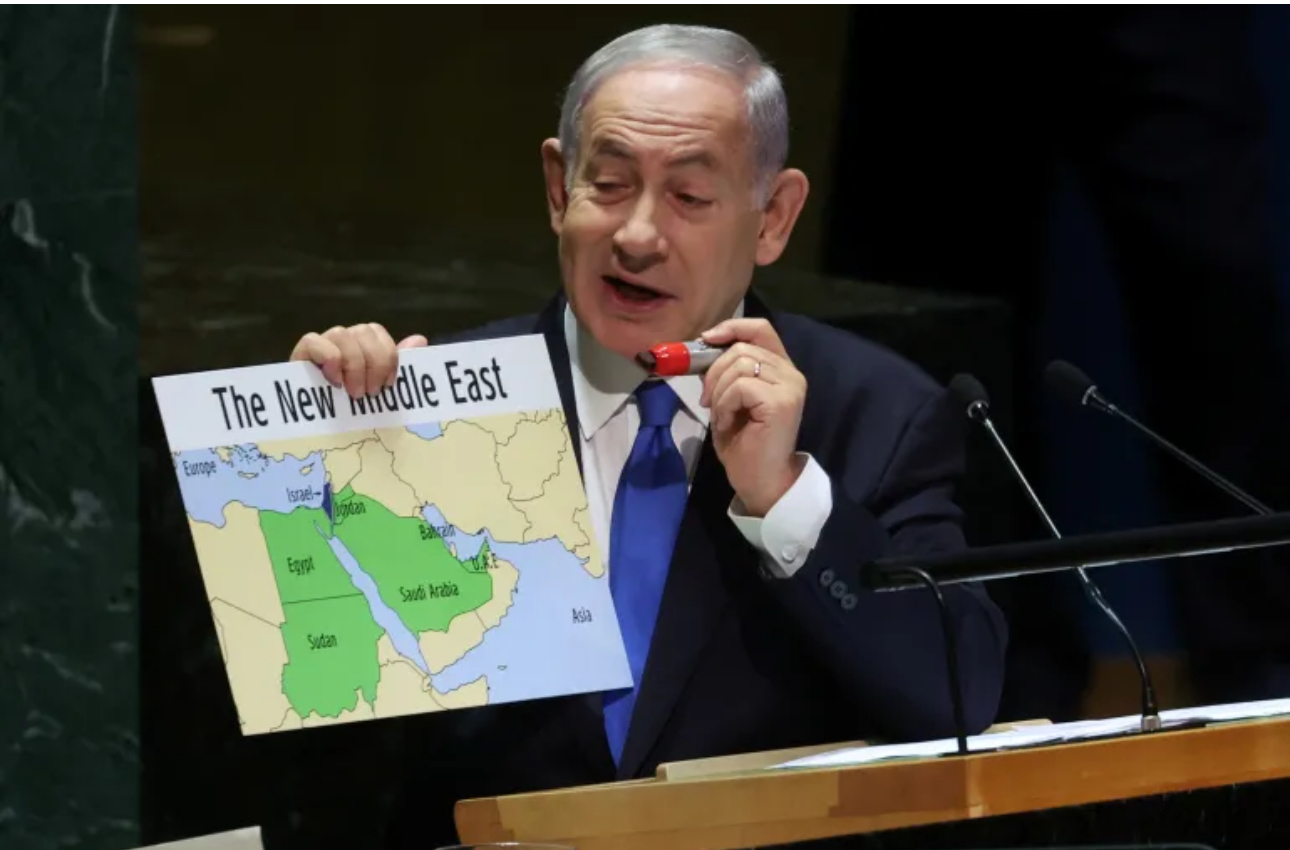Israeli Prime Minister Benjamin Netanyahu’s repeated references to a “Greater Israel” narrative has drawn more global scrutiny of Israel’s ongoing operations in Gaza. This ideology, rooted in ethno-nationalism, envisions Israeli sovereignty stretching from the Jordan River to the Mediterranean Sea, framing military operations as part of a settler-colonial expansion rather than a limited counterterrorism campaign, as detailed by The Guardian.
Netanyahu’s far-right allies use religious references in some cases but not in others, depending on the political context. In addition to security issues, Israeli policy is shaped by political and religious ideas that have an impact on Palestinians and other minorities, such as Christians.
Greater Israel as a Strategic Framework
The pursuit of Greater Israel raises questions under international law and human rights norms, while contributing to regional instability and isolating Israel diplomatically. Although not codified as official policy, the Greater Israel concept has long influenced segments of the Israeli religious and political right. Netanyahu has frequently referenced it, including recent statements that Israel must maintain security control west of the Jordan River—effectively “from the river to the sea.”
Multiple outlets confirm that this phrasing signals a rejection of Palestinian sovereignty and a declaration of permanent occupation. For instance, The Guardian reports that Netanyahu opposes the creation of a Palestinian state, insisting Israel must control all territory west of the Jordan River. Similarly, Al Jazeera notes that his position “collides with the idea of sovereignty,” reaffirming Israel’s territorial claims. Mondoweiss provides historical context on the Greater Israel ideology, linking it to long-standing opposition to Palestinian statehood.
In its more extreme forms, the Greater Israel vision expands beyond the occupied Palestinian territories into parts of Jordan, Lebanon, Syria, Egypt, Iraq, and northern Saudi Arabia. This goal, drawn from both biblical interpretation and ultranationalist ideology, has appeared symbolically, such as on IDF uniform patches, raising concerns about the integration of ethnonationalist symbolism within state institutions.

Map of “Greater Israel”
Netanyahu’s Security Claims vs. Territorial Ambitions
Netanyahu says Israel must keep control of all land west of the Jordan River to ensure its security. In a January 18, 2024 news conference, he insisted that Israel’s security depends on maintaining full control over this territory, even if peace deal is reached. He acknowledged that it conflicts with Palestinian sovereignty, but called it necessary.
He also frames the land as the Jewish people’s birthright, blending historical and religious claims with security reasons. He referred to the need for “security control over the entire territory west of the Jordan River.” Critics point out a major contradiction: the “Greater Israel” vision, supported by some religious and political groups—specifically members of Netanyahu’s far-right cabinet—includes not just the West Bank but parts of Jordan, Lebanon, Syria, Egypt, and northern Saudi Arabia. This expansive, biblically rooted idea goes beyond security needs. Netanyahu’s mix of security claims with territorial ambition suggests his motives may not be solely defensive, raising questions about Israel’s true long-term goals.
Impact on Religious Minorities
Far-right members of Netanyahu’s coalition frequently invoke biblical language, such as the “Promised Land,” to justify territorial expansion. Yet these same figures often disregard biblical teachings when they conflict with nationalist goals, occasionally framing Christian texts and as antisemitic.
This contradiction has tangible effects. There has been a documented rise in attacks on Christian clergy and churches in the occupied West Bank, including spitting on priests, desecrating religious sites, and harassing Palestinian Christians. In towns like Taybeh, one of the last Christian villages in the West Bank, settlers have set fire to vehicles, attempted arson at churches, and harassed residents.
A 2024 report by the Rossing Center recorded 111 incidents of harassment and violence against Christians in Jerusalem, including 47 physical assaults on clergy. Vatican News reports similar attacks in Taybeh, highlighting the threats faced by clergy and residents. Coverage from Reuters and Church in Need corroborates these incidents, documenting arson, vandalism, and harassment. Amnesty International warns that such attacks contribute to the accelerating exodus of Christians from the region and undermine interfaith coexistence.
These patterns were highlighted in an interview with Mother Agapia Stephanopoulos, a Greek Orthodox nun based in Jerusalem, who stated that her threats and harassment came from Israeli settlers rather than Hamas. Following her interview with Tucker Carlson, some Israeli media outlets Israeli media outlets accused her of siding with terrorists, contradicting her firsthand testimony. Her accounts provide important insight into the challenges faced by Christian clergy in the occupied West Bank and the highly politicized nature of reporting on the Israeli-Palestinian conflict.
This perspective suggests that the military operations align with broader expansionist goals rather than solely addressing immediate security threats. The international community continues to monitor the situation closely, emphasizing the importance of adherence to international law and the protection of civilian populations.





